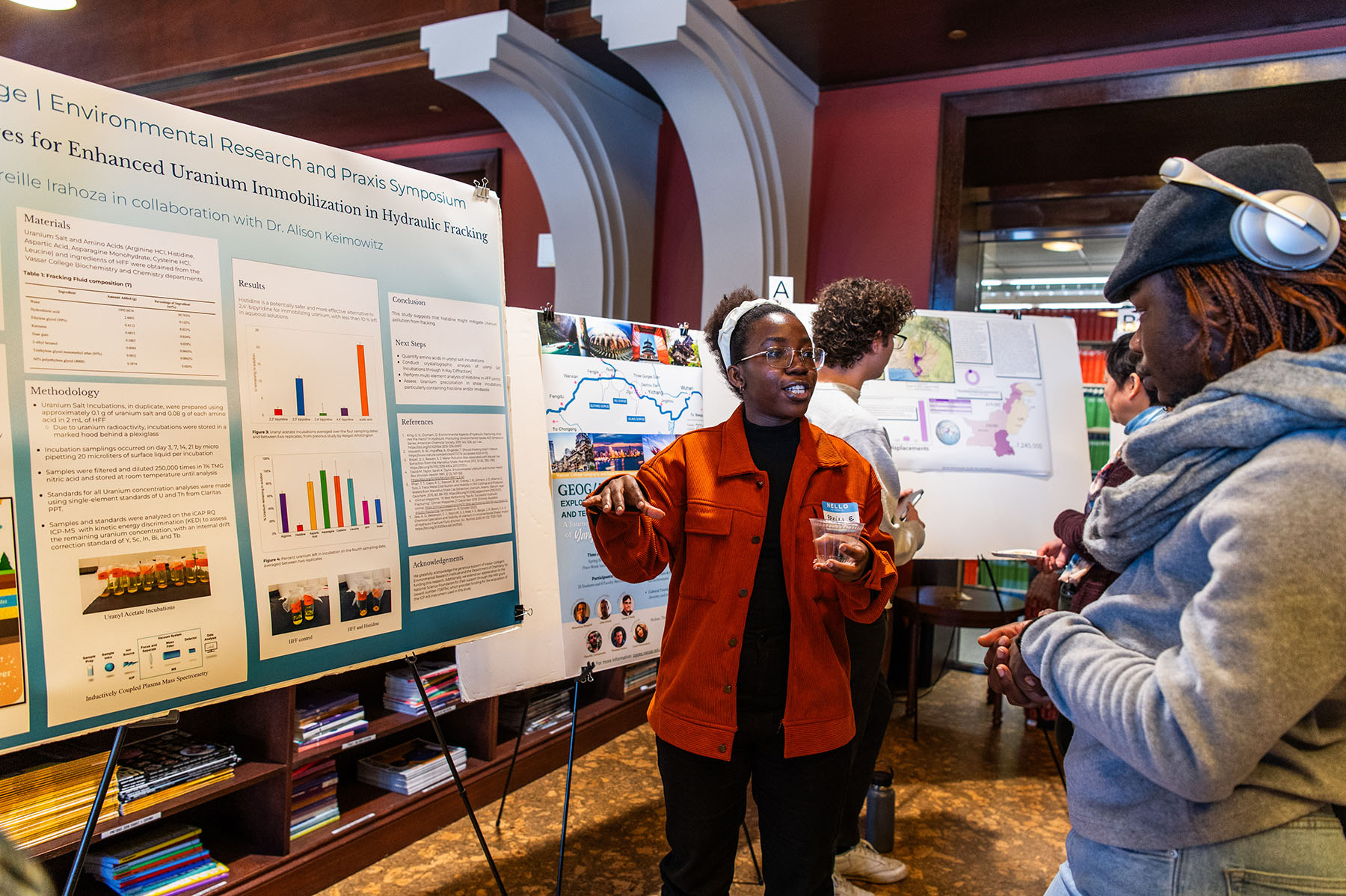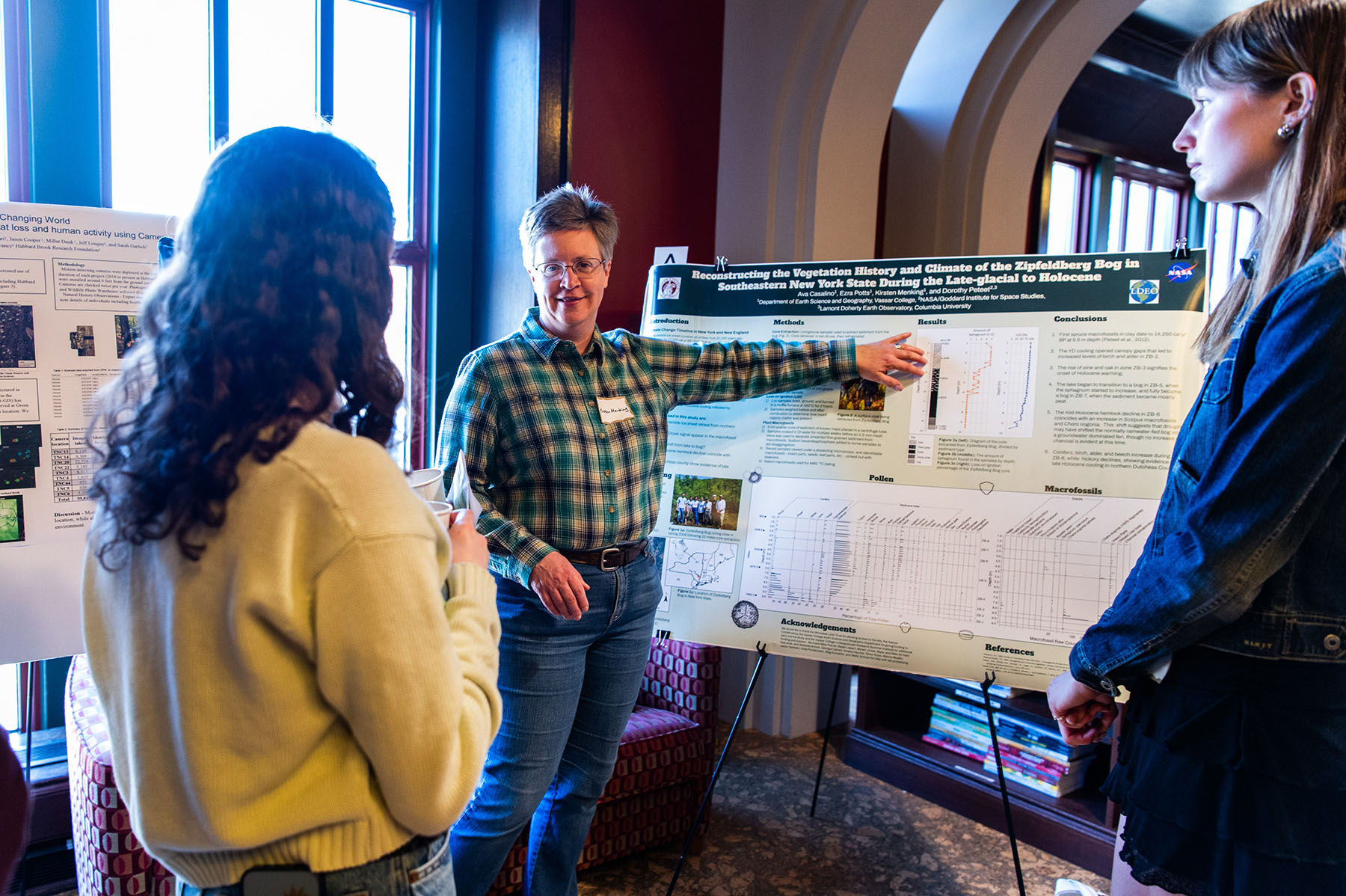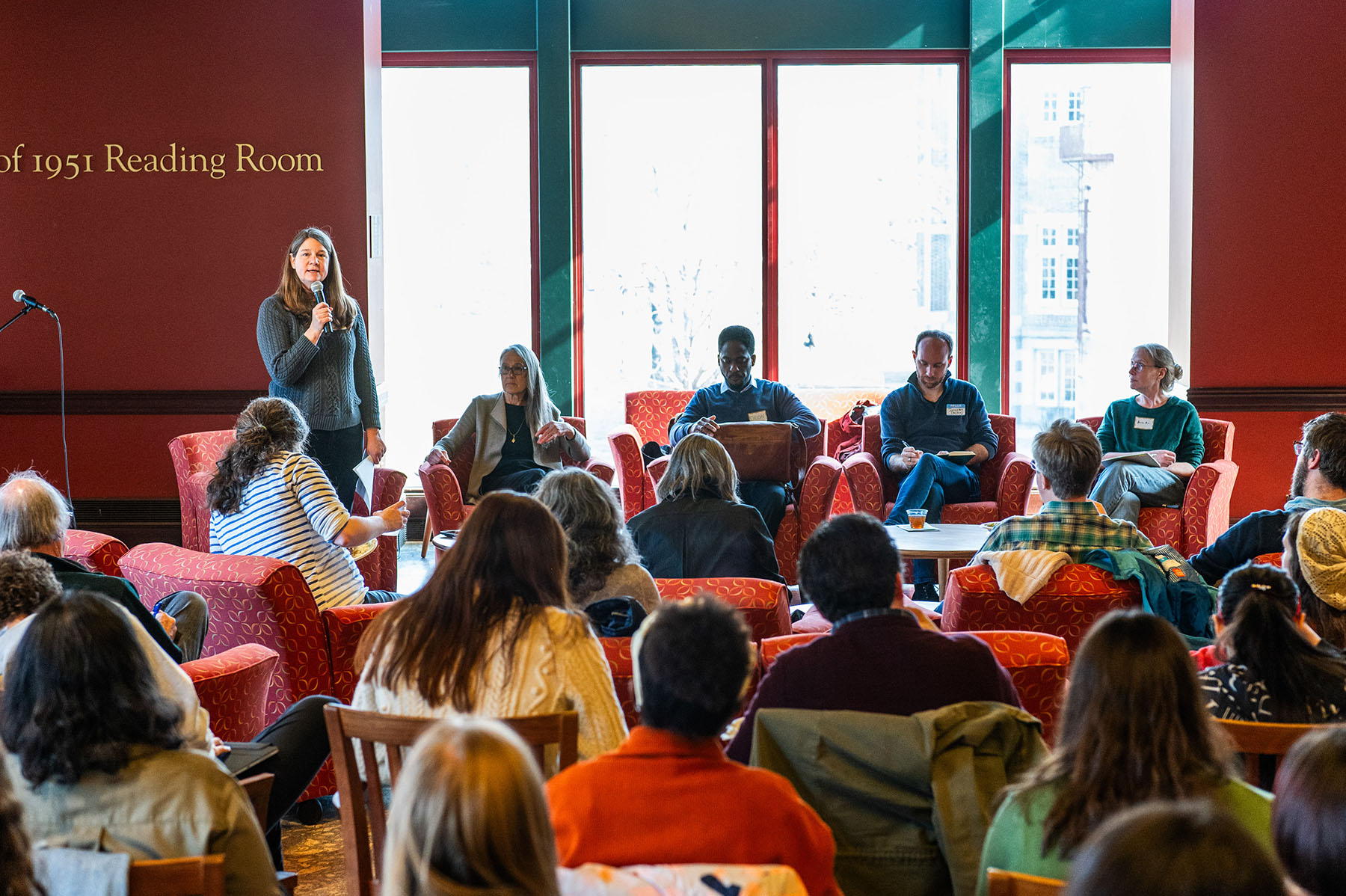Environmental Research Institute Symposium Tackles Climate Change
When Olivia Blank ’27 enrolled at Vassar last fall, she volunteered to help Vassar’s Environmental Cooperative enhance the gateway to the College’s 525-acre Preserve. “It’s important,” Blank said, “for the College to make its resources visible to the local community so people can learn more about environmental issues.”

On February 9, Blank joined dozens of other students, faculty, and administrators at a symposium sponsored by the Vassar Environmental Research Institute, where they shared ideas on ways to combat climate change. Participants explained their projects during an hour-long poster session in the Class of 1951 Reading Room in Thompson Library. Projects at the poster session, in addition to the work being done at the gateway to the Preserve, included the role of trees in carbon sequestration, a study of possible ways to mitigate uranium pollution in hydraulic fracking, the collection of information on the diverse population of insects in the meadows and forests of the Preserve, and about a dozen more.

Associate Professor of Biology Jodi Schwarz, coordinator of the Environmental Research Institute’s Steering Committee, said the goal of the symposium was to “cross-pollinate” some of these ideas. “A lot of us on campus are working on addressing environmental issues,” Schwarz said. “The goal of this event is to let each other know what we are doing and to spark conversations about how we can connect and collaborate. I was amazed at the array of the projects that were on display. They demonstrate that the Vassar campus is a vibrant place for this kind of work.”

During a panel discussion that followed the poster session, Assistant Professor of Earth Science and Environmental Studies Deon Knights said he was confident that efforts to find ways to combat climate change were embedded in the College’s culture. “There is a genuine interest among my students in this topic,” Knights said, “not just as an academic subject but as a community-based issue that must be addressed.”
Marianne Begemann, Dean of Strategic Planning and Academic Resources, said the College is committed to taking the necessary steps to make the campus carbon neutral by the year 2030. “We don’t look for perfection in what we do, but we do look for what’s possible, and our goal is on track,” Begemann said.
Another panelist, Professor of Geography Mary Ann Cunningham, said one key to finding workable solutions to all environmental issues is patience. “It’s persistence—knowing that solutions can often take time,” Cunningham said.
Associate Professor and Chair of Chemistry Alison Spodek Keimowitz agreed. “What resonated with me today is what we are doing is not easy or simple,” Keimowitz said. “The key is to keep chipping away, to build a strong community here, and that leads to meaningful social change.”